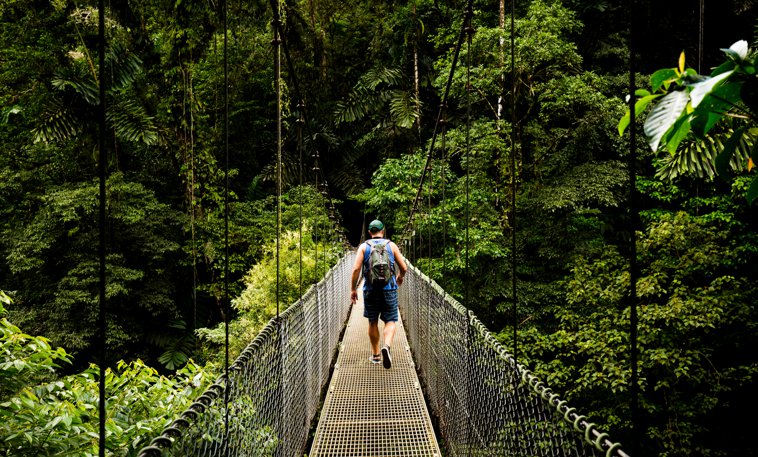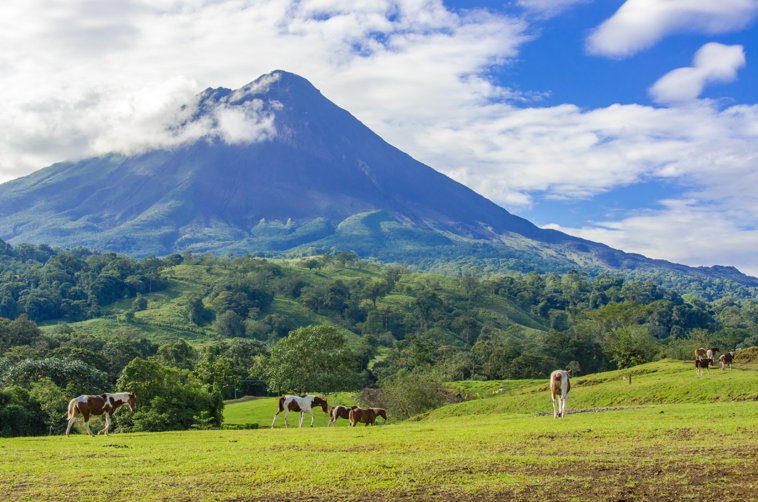How to Sound like a Local in Costa Rica
Planning a trip to Costa Rica? If you are, you’ll definitely want to keep this list of Costa Rican regionalisms and slang in your back pocket. Like most other Spanish-speaking countries, Costa Rica has many words and phrases that you're only likely to hear if you’re sunbathing on the beaches of Manuel Antonioor in a crowded marketplace in San José. Here are some of our favorites!

¡Pura vida! = Great!
¡Pura vida!is definitely one of the most useful and most versatile phrases that you can learn to use in Costa Rica. Used by almost everyone, this phrase literally translates to pure life, but is typically an enthusiastic response to good news. Additionally, Costa Ricans use pura vida as a way of greeting each other, as a way of saying good bye, or as a way of saying thank you.
| examples |
|---|
Tico = Costa Rican
Here’s another regionalism you’ll get infinite value from if you’re staying in Costa Rica. Ticois a shortened and colloquial way to refer to a Costa Rican, that is, someone who lives in or is from Costa Rica.
| examples |
|---|
Mae = Dude
Maeis a colloquial way that one tico might refer directly to another tico. The best translations for this term of address are dude, bro, or man, although it can be used to refer to any person, regardless of gender, nationality, or relationship to the speaker.
Chante = Home
Un chanteto any other Spanish speaker might raise a few eyebrows, but if you use this word with someone from Costa Rica, they’ll know exactly what you mean. When a tico, uses chante they’re referring to home or to a house.
| examples |
|---|
Ruco = Horse
In Costa Rican slang, if you hear ruco, it’s time to saddle up. This word is what Costa Ricans use to refer to their horses. Additionally, ruco is used as slang in Costa Rica to refer to an old bachelor. So be aware of context and your audience when using this in front of your fellow ticos!
| examples |
|---|
Mejenga = Pickup soccer game
Looking for something social to do while you’re in Costa Rica? Why not join in at a local mejenga? In Costa Rican Spanish, una mejenga is the equivalent of a pickup soccer game in English, that is, a soccer game that is unranked, where anyone that shows up can participate!
| examples |
|---|
Tuanis = Awesome
This useful little word is what Costa Ricans say when they want to express how awesome or cool they think something is. Feel free to use tuanisto describe anything you’re impressed with, whether it’s a great movie, some delicious food, or a good friend.
| examples |
|---|
Jalarse una torta = To screw up
You’ll typically hear jalarse una tortaafter something goes terribly wrong. Although this phrase literally translates to to pull a cake, Costa Ricans use it when they want to express that they have screwed up or failed at something.
| examples |
|---|
Goma = Hangover
If you’re already very familiar with Spanish, you may recognize this word as meaning glue or gum, but in Costa Rica, as well as in many other Central American countries, gomais used colloquially to refer to a hangover.
| examples |
|---|

¡Qué tuanis!With this list in hand, you’re ready for your trip to Costa Rica! Enjoy your giant plates of casado, hiking up el volcán Arenal, and conversing with other ticos!
Traveling throughout the Spanish-speaking world? Learn how to sound like a local all over with these articles:











